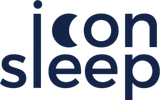No More Sweaty Dreams
Posted by Ethan Wright on 26th Nov 2020
Sweaty nights? Night sweats, or excessive sweating during sleep, are a common symptom in men and women. There are many medical conditions and diseases that cause them which we discussed last week. As for the solution, here are some of the best-known ways to help relieve this condition.
Determine the degree of severity of the symptoms associated with hot flashes
Hot flashes will emerge in various increments. The symptoms may last for several months or years. The degrees of severity are:
Mild
The feeling of a sudden sensation of heat without sweating.
Moderate:
Heat is accompanied by sweating, but are able to conduct normal activities.
Severe:
Feeling overheated accompanied with sweating and the inability to conduct normal activities without discomfort.
Prepare yourself for night sweats
Night sweats are the most common discomfort associated with hot flashes. As the name indicates, night sweats occur at night often accompanied by disruption of sleep. A person becomes irritable, short-tempered, tired and disagreeable due to sleep deprivation.
Communicate your concerns with a healthcare professional
Healthcare staff that specializes in this area can prescribe the proper treatment that will either halt the symptoms or reduce the frequency and discomfort. Consulting your doctor before you use any type of treatment is recommended to ensure that the method you plan to use is safe and effective at the same time.
Review the various hormone therapy treatment options for hot flashes that are available to you
The most common option used is hormone therapy, which consists of using estrogen or progesterone.
Progesterone is estrogen combined with progestin, also called the combination, has been found to be very effective in the treatment of hot flashes. It is safe for women with their uterus intact. Estrogen should only be used if the hot flashes were induced due to a hysterectomy or other surgically induced menopause.
Know the possible health risks associated with using a prescribed or alternative treatment for hot flashes
The risks and side effects can be life-threatening. Inform your healthcare professional if you or a family member were diagnosed with any of the following:
– Blood clots
– Gallbladder disease
– Stroke and heart attacks
– Abnormal vaginal bleeding
– Breast, ovarian, and endometrial cancer
Consider alternative treatment options to manage hot flashes.
Alternatives include dietary and herbal supplements such as soy, black cohosh, evening primrose, ginseng, chamomile, echinacea, St. John’s wort, garlic, and ginkgo.
Green tea can temporarily ease the discomforts.
Acupuncture involves inserting thin sharp needles into various parts of the body to relieve pain or discomfort.
Decrease caffeine intake
Caffeine increases the blood pressure which contributes to perspiration.
Wear cotton clothing
Cotton is light and allows for absorption of perspiration
Yoga
It creates relaxations by easing or eliminating tension and stress

